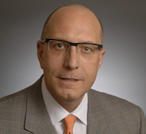Apple broke the law by lying about Steve Jobs health, says a top marketing professor.
But whether the Security and Exchange Commission has the “balls” to prosecute is unclear.
Paul Argenti, Professor of Corporate Communication at Tuck School of Business at Dartmouth, says that Apple’s communications about its CEO’s health violated the SEC’s full disclosure regulations.
The SEC’s Regulation FD requires “full and fair disclosure by public companies,” but Apple has done neither, says Argenti. At first, Apple said Jobs had a “nutritional imbalance,” but on Friday the Wall Street Journal disclosed that he has undergone a liver transplant.
“The difference between a nutritional imbalance and a liver transplant is huge,” said Prof. Argenti to CoM by phone. “If this is not a legal issue and a Regulation FD issue, I don’t know what is.”
Argenti said Apple clearly knew months ago that Jobs would have to undergo life-saving surgery and had a legal obligation to disclose that.
“The law is very clear — full disclosure of material information,” said Argenti. “If a CEO’s liver transplant isn’t material, what is? But whether the SEC has the balls to do something about it, we’ll see.”
The SEC is reportedly already looking into the company’s handling of Jobs’s health disclosures.
Experts argue that shareholders are legally entitled to information that has material effect on company — and that a CEO’s health is material, especially one as closely tied to the company as Jobs is.
In December, Jobs said he was suffering from an easily treatable hormone imbalance; less than a week later, he said he was taking six months medical leave because his medical issues were “more complex.”
Argenti said the biggest issue is the ethics and the reputation of the company. Apple has severely damaged its trustworthiness and credibility.
“Clearly, this is going to affect not only Apple’s customers but employees that were lied to or kept in the dark about what was going on,” Argenti said. “Apple is one of the most admired companies in America and this is how they deal with this kind of news? It’s unacceptable, unethical and irresponsible to all constituents.”
Argenti said Apple’s miscommunication about Jobs undercuts its slick marketing and hurts its reputation with consumers and investors. “As a communications strategy, it makes no sense.”
“It’s going to be a big issue in the next few days, I guarantee it.”
Jobs was diagnosed with pancreatic cancer in 2004, which appeared to have been successfully treated until 2008, when Jobs lost weight rapidly. On Friday, the Wall Street Journal reported that he had received a liver transplant, suggesting that the cancer had metastasized to the liver.
So far, Apple has neither confirmed or denied the Journal report.

Leander Kahney is the editor and publisher of Cult of Mac.
Leander is a longtime technology reporter and the author of six acclaimed books about Apple, including two New York Times bestsellers: Jony Ive: The Genius Behind Apple’s Greatest Products and Inside Steve’s Brain, a biography of Steve Jobs.
He’s also written a top-selling biography of Apple CEO Tim Cook and authored Cult of Mac and Cult of iPod, which both won prestigious design awards. Most recently, he was co-author of Cult of Mac, 2nd Edition.
Leander has been reporting about Apple and technology for nearly 30 years.
Before founding Cult of Mac as an independent publication, Leander was news editor at Wired.com, where he was responsible for the day-to-day running of the Wired.com website. He headed up a team of six section editors, a dozen reporters and a large pool of freelancers. Together the team produced a daily digest of stories about the impact of science and technology, and won several awards, including several Webby Awards, 2X Knight-Batten Awards for Innovation in Journalism and the 2010 MIN (Magazine Industry Newsletter) award for best blog, among others.
Before being promoted to news editor, Leander was Wired.com’s senior reporter, primarily covering Apple. During that time, Leander published a ton of scoops, including the first in-depth report about the development of the iPod. Leander attended almost every keynote speech and special product launch presented by Steve Jobs, including the historic launches of the iPhone and iPad. He also reported from almost every Macworld Expo in the late ’90s and early ‘2000s, including, sadly, the last shows in Boston, San Francisco and Tokyo. His reporting for Wired.com formed the basis of the first Cult of Mac book, and subsequently this website.
Before joining Wired, Leander was a senior reporter at the legendary MacWeek, the storied and long-running weekly that documented Apple and its community in the 1980s and ’90s.
Leander has written for Wired magazine (including the Issue 16.04 cover story about Steve Jobs’ leadership at Apple, entitled Evil/Genius), Scientific American, The Guardian, The Observer, The San Francisco Chronicle and many other publications.
Leander has a postgrad diploma in artificial intelligence from the University of Aberdeen, and a BSc (Hons) in experimental psychology from the University of Sussex.
He has a diploma in journalism from the UK’s National Council for the Training of Journalists.
Leander lives in San Francisco, California, and is married with four children. He’s an avid biker and has ridden in many long-distance bike events, including California’s legendary Death Ride.
You can find out more about Leander on LinkedIn and Facebook. You can follow him on X at @lkahney or Instagram.


